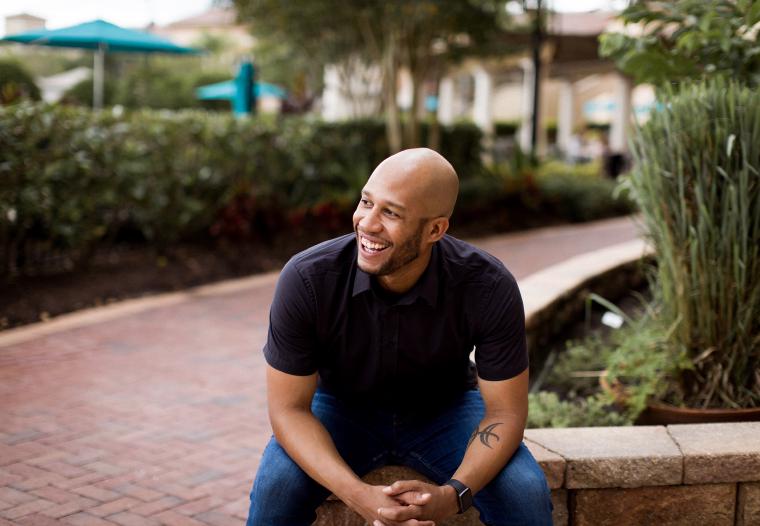- Money Management
- Financial Health
The 6 bad financial habits you may need to break

Call ‘em bad habits, decisions, vices – whatever. We’ve all got things we know we could be doing better in life, which can include how we deal with money.
At the same time, there are a million excuses we could give ourselves for not tackling our money management once and for all. It’s boring. Budgeting means I won’t have any fun. I’ll never get ahead of my debt. I’ve got things (kind of) under control.
Let today be the day you stop giving yourself excuses and start giving yourself a fresh financial outlook. We’ve rounded up some of the biggest bad habits when it comes to your wallet – and we’re sharing some ways to level up your finance game.
-
Living on credit
Have you ever felt like using a credit card is like ‘Making it rainnnn!’? We get it. It’s so tempting to spend like crazy when you’ve got hundreds, if not thousands, of dollars you could go to town with. But most credit cards come with a nasty side effect: Interest. Meaning anything you don’t pay off right away will cost you more than what you actually paid for it. And who really wants to pay more for things?
Some credit cards offer sweet rewards if you have the cash to pay them off. If you’re likely to outspend what you earn, then it might be time to kiss your credit cards goodbye and opt for only using your prepaid card or plain ol’ cash. Then you’ll only ever be able to spend what’s in your account (or wallet), and will help to avoid accumulating sky high debt and piles of interest.
The goal: Switch to a prepaid card or cash and stop relying on credit.
-
Only making minimum payments
While we’re talking credit, let’s talk minimum payments. Usually credit card companies have a minimum or set amount they need you to make every month, or you risk losing that line of credit if the minimum is not met. But the minimum shouldn’t be the maximum you pay off. In fact, only paying down the minimum will likely hardly make a dent in your interest, which could continue to stack up month after month.
If you’re using a credit card, aim to pay off the whole balance each month, or as much as you can without jeopardizing your expenses elsewhere. The minimum may keep creditors off your back, but it may not help you stay out of debt.
The goal: Pay off your entire credit card balance monthly (and don’t spend more than you can pay back!)
-
Spending more than you make
On that note, this one’s so simple, but such a killer. It’s important to know how much you’ve got coming in each month, as well as how much is going out. If you don’t, you could find yourself dealing with more debt, whether it’s on your credit card, or going into overdraft on your checking account. (Hint: With a prepaid card like Control, there’s less of a chance to overspend, since you can only spend the money you’ve loaded onto the card.)
So how do you wrap your head around your actual funds? It’s the big ‘B’ word: Budgeting. If you’re cringing, we promise, it’s not that bad. There are even some great apps you can get on your phone to help you manage your money on the move, like Mint and YNAB. The best part about budgeting? You can stop feeling guilty when you go out for dinner or buy those shoes you’ve had your eye on – as long as you see there’s room in your budget, of course.
The goal: Make a budget and keep track of your spending before you buy more.
-
Ignoring bills
If you’re spending more than you make, then you probably don’t always have enough to pay your bills. And if you don’t have enough, it’s tempting to just kind of “forget” your bills exist, period. But not staying on top of your expenses can seriously hurt you down the road. For one thing, you could have your service cut off with whoever is trying to bill you – that goes for your cell phone, internet, cable, and more basic utilities like electricity and water. If you think that’s bad, you could even have a collections agency sent after you. Most importantly, when you miss a bill payment, your credit score can be affected. That can make buying a house, renting an apartment, or purchasing or leasing a car downright impossible.
So do yourself a favor. Even if those bills with the red ‘OVERDUE’ stamp on them look kinda scary, open them up and make a plan to pay them off! Start with the smallest one first to get the ball rolling. To save yourself from missing bill payments down the road, try setting up automatic withdrawals or payments on your card.
The goal: Set up automatic bill payments to avoid missing payments.
-
Not saving money
We’ve already covered that going into debt is not a great thing to do to yourself. But neither is living paycheck to paycheck – a trap that’s so easy to fall into! You might be thinking you’ve got things covered; you’re paying off your bills, you don’t have credit card interest, and you’re enjoying your life. But what happens if one little thing goes wrong? Where does that extra money come from? Suddenly you might be looking at some surprise debt, or you might have to cut back in other parts of your life.
Saving money is just as important as avoiding debt. Not only can it help you out in a pinch, it can also help finance bigger purchases – from a house or car to a dream trip or special event like a wedding. Saving money is also key if you ever want to retire and kick back. It may seem way, way in the future (and not so fun to think about) but having some money in the bank now can set you up right for life. Make a point to save a portion of every paycheck and only tap into your savings if you really, really need to.
The goal: Try to put aside at least 10% of every paycheck into your savings, until you’ve got at least three months’ salary put away.
-
Impulse shopping
You see it, you like it, you want it, you buy it – shopping has become easier than ever these days, but you’ve got to exercise some self-control if you don’t want your spending to get out of control. If you’ve got a credit card in your phone’s mobile wallet, think about removing it. No seriously – we get that it’s convenient, but when buying something is just a click away, your best bet might be to remove the temptation altogether.
If you really want something, give yourself a cooling off period. If that something costs a little bit of money, like under $50, sleep on it. If it’s a bigger purchase, make it a week or two. If you still can’t get that purchase out of your head, circle back to your budget and see how you can make it work (ideally, not by using your credit card!)
The goal: Stop instant shopping and take a breather before you hit the ‘buy’ button.
If you found yourself nodding along at some of these bad spending habits, we got you! Start by picking just one to tackle and start turning your spending into saving to get control of your financial situation once and for all.



